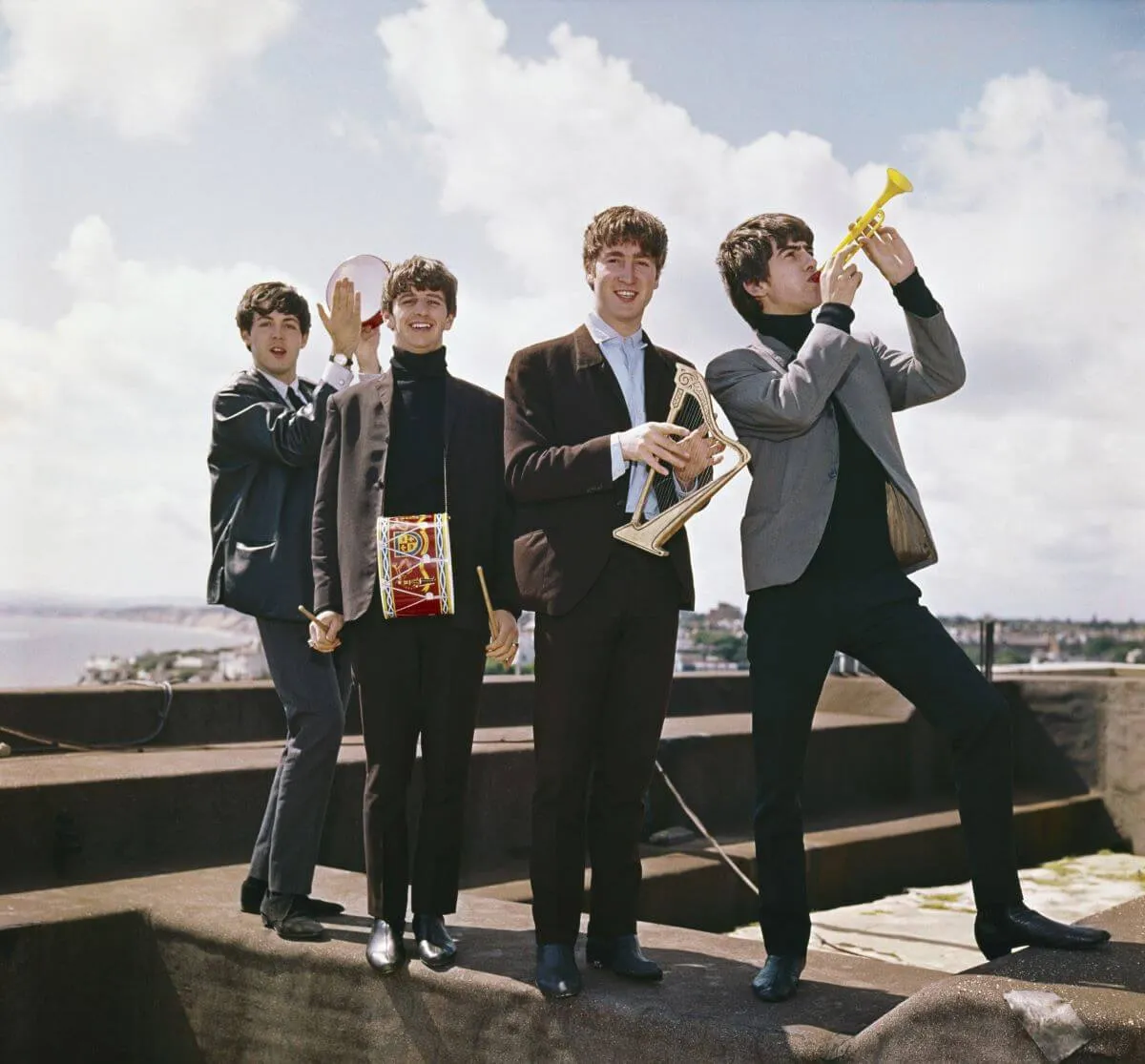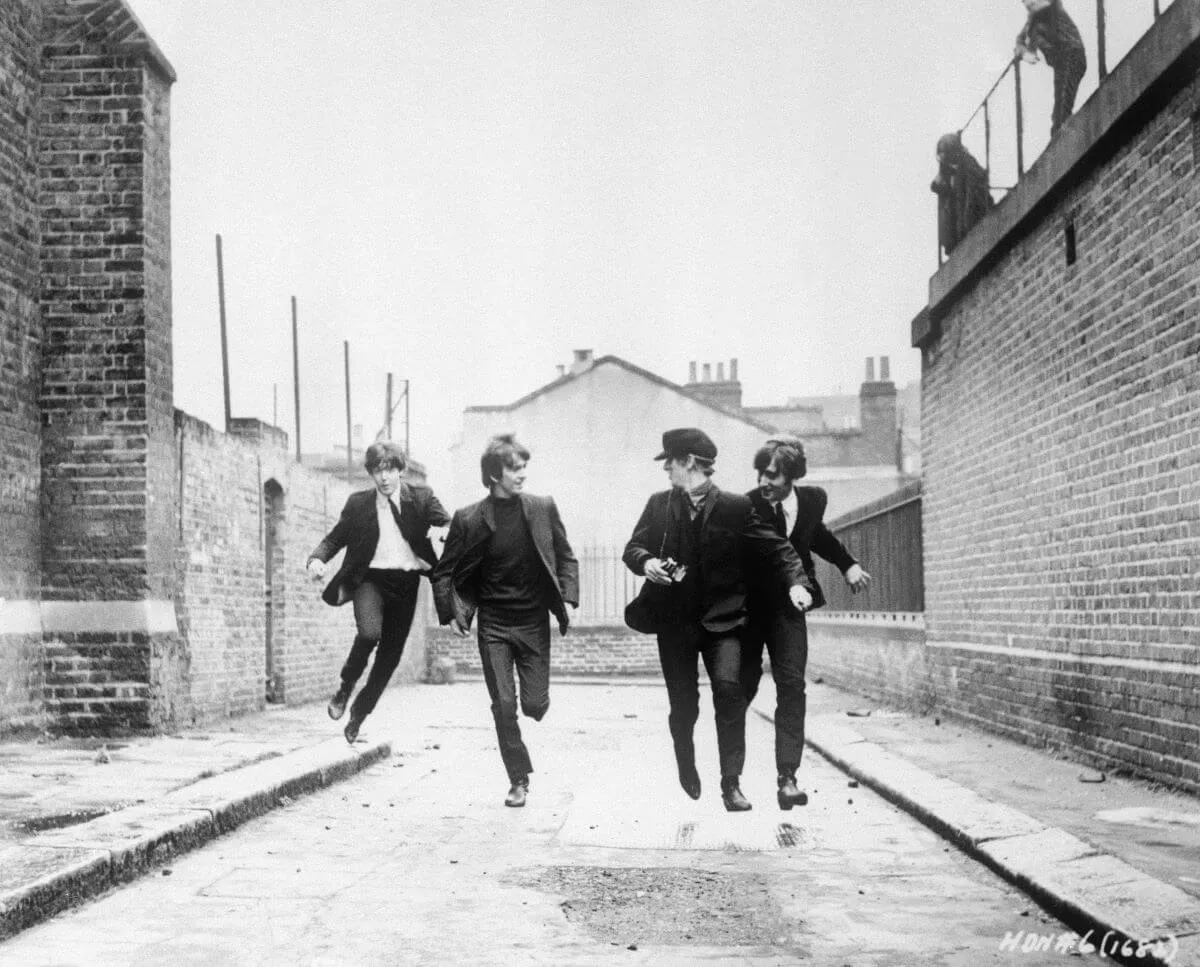
George Harrison Said the U.S. Was ‘Screwing Up’ The Beatles’ Music
While George Harrison could be critical of The Beatles, he still thought their music sounded good — as long as it wasn’t produced in the United States. For the most part, he explained, The Beatles had control over their creative output. They were able to put what they wanted on their albums, in the order they thought was best. This changed when publishers in the United States got ahold of their records.
George Harrison did not like the way U.S. publishers made The Beatles’ music sound
According to Harrison, many of The Beatles’ records did not meet the standards the band set for themselves. When their label in the United States began releasing their music, they went against the band’s wishes for how to present their albums. While it didn’t bother him much in the years after the band broke up, it once stung.
“It doesn’t bother me anymore,” he told Rolling Stone. “At first it was pretty crummy. We always had complete artistic control from the outset, and we took great care over running orders, having the right songs in the right places and good sleeves — it was all done with a bit of taste. But straightaway they started screwing that up in the States, holding back tracks from albums so that, for every two albums released in Britain, they could release three over there.”

This continued to be a problem for the band, despite their power and success. Still, Harrison said that he couldn’t complain as long as he was getting paid.
“[S]till, everything we did continued to be in pretty good taste until the contract expired, and then they started shoving out all these repackages with crummy sleeves and everything,” he said. “It doesn’t bother me as long as they keep paying the royalties.”
George Harrison was still proud of much of The Beatles’ music
Another problem for the band was the way the public began to view their music. He said it initially bothered all of them to be considered “nostalgia” music. Again, though, it stopped getting to him as much. He believed their music could speak for itself.
“We’ve been nostalgia since 1967. It’s fine,” he said. “There was a time when I don’t think any of us liked it – that 1968 to 1969 period. But now it’s funny. [Grinning] It’s like being Charlie Chaplin or Laurel and Hardy. But the music still stands up, still sounds very good, a lot of it.”
He still wanted no part of a band reunion
While Harrison was proud of the songs The Beatles released, he adamantly refused to make more with them. He had long craved the freedom that being a solo artist allowed him, and he wasn’t prepared to return to the band’s hierarchy. He didn’t care that this would disappoint fans.
“They’ve got lots and lots of songs they can play forever. But what do they want? Blood?” he asked. “They want us all to die like Elvis Presley? Elvis got stuck in a rut where the only thing he could do was to keep on doing the same old thing, and in the end his health suffered and that was it.”

He added that while people had fond memories of the band, the actual members could not remember their time in the group the same way.
“The Beatles fortunately did that hit-and-run. But every year we were Beatling was like twenty years; so although it might only have been five or six years it seemed like eternity,” he said. “That was enough for me, I don’t have any desire to do all that. It might have been fun for everybody else, but we never saw the Beatles. We’re the only four people who never got to see us. [Laughing].”


